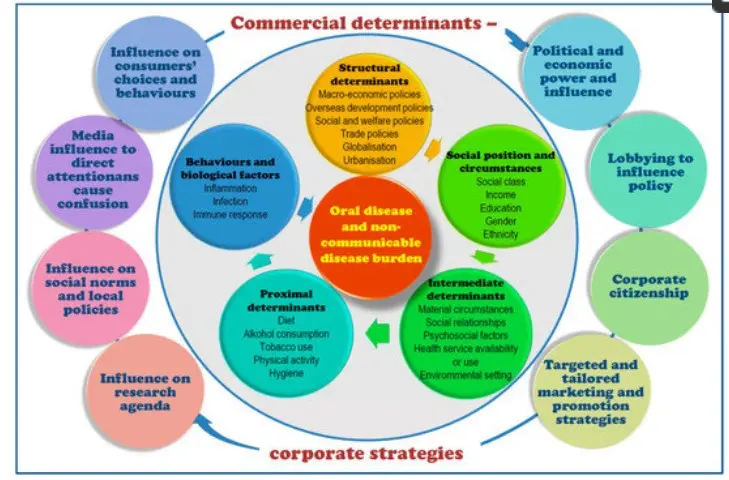Key Takeaways
- Dental health is crucial for overall wellness, impacting physical and mental health.
- Regular dental care can prevent serious health issues and improve quality of life.
- Small lifestyle changes can have a big impact on dental health.
- Accessibility to dental care is a growing concern globally.
Dental care might not always be top of mind when considering our overall health. However, oral health significantly contributes to both physical and mental well-being. Maintaining good oral hygiene cannot be overstated, as dental health plays a crucial role in our daily lives. Access to comprehensive dental programs, such as VADIP dental insurance, highlights the importance of dental health coverage. Such programs ensure that individuals have access to necessary dental care, which can prevent a myriad of health issues.
Dental health goes beyond just a bright smile. It involves a meticulous care system that shields the body from various chronic conditions. The mouth serves as the entry point to the digestive and respiratory tracts, and poor oral hygiene can lead to infections elsewhere in the body. Keeping gums and teeth healthy profoundly impacts one’s quality of life and overall health outlook, thus cementing dental care’s role in holistic well-being. Individuals can avoid complications beyond the mouth by prioritizing regular check-ups and practicing consistent oral hygiene.
The Connection Between Dental Health and Overall Well-being
Good dental health is more than a sign of a beautiful smile; it’s integral to maintaining overall health. Research has firmly established a link between oral health and systemic diseases such as cardiovascular disease and diabetes. For instance, inflammation and bacteria in the mouth can lead to heart disease by affecting the bloodstream and creating detrimental conditions. Furthermore, the presence of gum disease can exacerbate diabetes by hindering blood sugar control. This correlation accentuates the role of oral hygiene in preventing serious health issues, as the mouth is a window to the body’s overall health. Regularly maintaining oral health can reduce visits to the dentist for dire problems and enhance overall well-being.
Common Dental Health Problems and Their Impact
Cavities and gum disease are prevalent dental issues that can lead to severe health consequences if neglected. For example, tooth decay is a gradual process that can eventually result in tooth loss, which often begins when plaque, a sticky film of bacteria, produces acids that attack tooth enamel. Additionally, gum disease can increase the risk of other illnesses like heart disease and stroke, illustrating the interconnectedness of oral care with broader health outcomes. These oral diseases can lead to pain, infection, and even tooth loss if untreated. Recognizing these risks underlines the necessity for effective dental routines and professional care.
Importance of Regular Dental Check-ups
Regular visits to the dentist act as a preemptive measure against severe dental issues. Through these consistent appointments, healthcare professionals can detect and treat early signs of potential problems before they escalate. Dentists can identify concerns such as early-stage gum disease or cavities that may not yet be causing pain. Moreover, according to recent studies, individuals attending regular dental visits have significantly lower risks of severe dental problems than those who do not. These check-ups serve as educational sessions where individuals can learn about their oral health, receive cleanings, and gain advice on effective oral hygiene practices, consequently promoting long-term health.
Preventive Measures for Better Dental Health
Preventive dental measures are essential in reducing disease risk and maintaining oral hygiene. Regularly brushing and flossing teeth cleans away food particles and plaque, which, if left unchecked, can lead to decay and gum issues. Fluoride toothpaste is especially beneficial as fluoride strengthens teeth and prevents decay. Furthermore, don’t neglect the importance of dental sealants, which act as barriers against decay-causing bacteria on the chewing surfaces of back teeth. Investing time in simple daily routines can drastically reduce oral health issues over time, proving that a little effort each day can lead to significant health benefits in the long run.
Accessibility to Dental Care: A Growing Concern
While awareness regarding dental health has increased, access to care remains a significant concern globally. Numerous factors, including geographic location, socio-economic status, and insufficient public health programs, can impede people from receiving necessary dental treatments. In rural areas, for instance, the unavailability of dental professionals can limit access to immediate and preventive care. Financial barriers further complicate this, where individuals without dental insurance are less likely to seek care until a problem becomes severe. Efforts to improve this, including more inclusive insurance options like community initiatives, are crucial to changing this narrative. By bridging these gaps, communities can work towards equitable healthcare that includes comprehensive dental services.
Role of Diet and Lifestyle in Dental Health
Diet plays an influential role in dental health. Consumption of high-sugar foods and drinks can lead to tooth decay, as oral bacteria feed on sugar, creating acids that erode tooth enamel. On the other hand, a balanced diet rich in calcium and vitamins supports strong teeth and gums. Foods like cheese, leafy greens, and almonds provide nutrients that maintain enamel and bone health. Lifestyle habits also play a part; for instance, quitting smoking and moderating alcohol consumption further protect oral health, ensuring that gums and teeth remain resilient. These nutritional and lifestyle choices can significantly impact oral health, supporting it from the inside out.
Future Trends in Dental Health
Innovations in dental technology continue to shape the future of oral healthcare. Advances such as teledentistry, which allows dentist consultations through digital means, are increasing accessibility and convenience for patients. This digital approach reduces barriers to care, making it possible for individuals who may not have easy access to a dentist to receive guidance and advice. Moreover, new technologies in diagnostic and treatment methods are making dental care more effective, less invasive, and more personalized. Such trends suggest a promising future where high-quality dental care becomes increasingly accessible, efficient, and patient-oriented, aiming to enhance satisfaction and outcomes for all individuals.
Also Read-Brighten Skin from the Inside Out: Start With Healthy Habits


